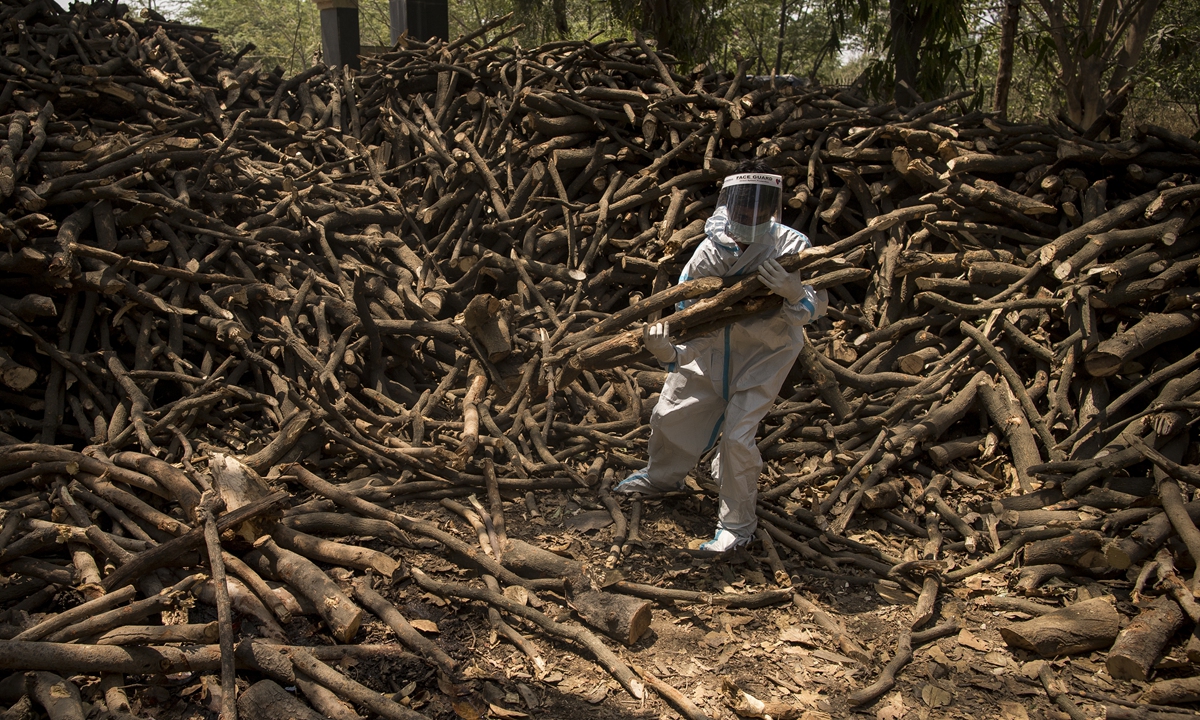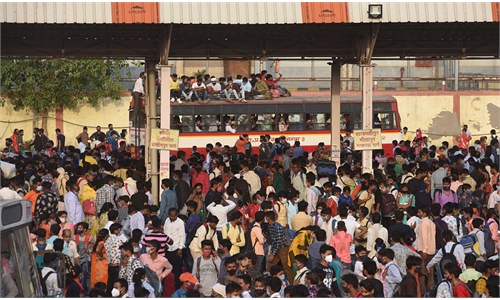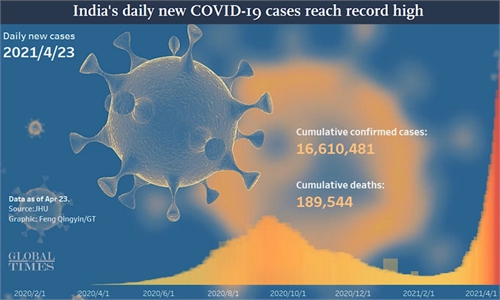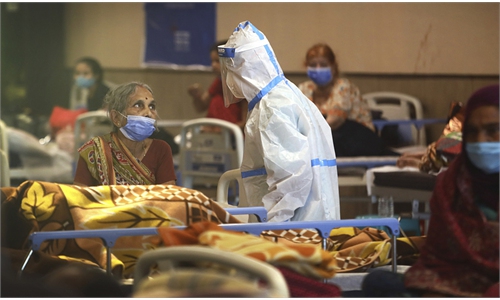People with empty oxygen cylinders scramble to save from COVID-19
India sees world’s biggest single-day rise
India marked a grim milestone in the COVID-19 pandemic on Thursday, reporting 314,835 new daily cases, the highest one-day tally anywhere, as its second wave and similar surges elsewhere raised new fears about the ability of health services to cope.

"The situation is very critical," Dr Kirit Gadhvi, president of the Medical Association in the western city of Ahmedabad, told Reuters.
"Patients are struggling to get beds in COVID-19 hospitals. There is especially acute shortage of oxygen."
Krutika Kuppalli, assistant professor at the Division of Infectious Diseases, Medical University of South Carolina in the US, said on Twitter the crisis was leading to a collapse of the healthcare system.
The previous record one-day rise in cases was held by the US, which had 297,430 new cases on one day in January, though its tally has since fallen sharply. India's total cases are now at 15.93 million, while deaths rose by 2,104 to reach a total of 184,657, according to the latest health ministry data.
Television showed images of people with empty oxygen cylinders crowding refilling facilities in the most populous state of Uttar Pradesh as they scrambled to save relatives in hospital. "We never thought a second wave would hit us so hard," Kiran Mazumdar Shaw, executive chairman of Biocon & Biocon Biologics, an Indian healthcare firm, wrote in the Economic Times.
"Complacency led to unanticipated shortages of medicines, medical supplies and hospital beds."
Delhi Health Minister Satyendar Jain said there was a crisis over the shortage of intensive care unit beds, with the city needing about 5,000 more than it could find. Some hospitals had enough oxygen to last 10 hours, others just six. "We can't call this a comfortable situation," he told reporters.
Similar surges of infections elsewhere around the world, in South America in particular, are threatening to overwhelm other health services.
India has launched a vaccination drive but only a tiny fraction of the population has had the shots. Authorities have announced that vaccines will be available to anyone over the age of 18 from May 1 but India won't have enough shots for the 600 million people who will become eligible, experts say.

Cemetery workers wearing PPE kits (personal Protection Equipment) sort logs of wood for the funeral pyres to perform the last rites of the patients who died of the Covid-19 coronavirus disease on April 22, 2021 at a crematorium in the outskirts of New Delhi, India. Photo: VCG
Hospitals across northern and western India including the capital, New Delhi, have issued notices to say they have only a few hours of medical oxygen required to keep COVID-19 patients alive. More than two-thirds of hospitals had no vacant beds, according to the Delhi government's online data base and doctors advised patients to stay at home."The situation is very critical," Dr Kirit Gadhvi, president of the Medical Association in the western city of Ahmedabad, told Reuters.
"Patients are struggling to get beds in COVID-19 hospitals. There is especially acute shortage of oxygen."
Krutika Kuppalli, assistant professor at the Division of Infectious Diseases, Medical University of South Carolina in the US, said on Twitter the crisis was leading to a collapse of the healthcare system.
The previous record one-day rise in cases was held by the US, which had 297,430 new cases on one day in January, though its tally has since fallen sharply. India's total cases are now at 15.93 million, while deaths rose by 2,104 to reach a total of 184,657, according to the latest health ministry data.
Television showed images of people with empty oxygen cylinders crowding refilling facilities in the most populous state of Uttar Pradesh as they scrambled to save relatives in hospital. "We never thought a second wave would hit us so hard," Kiran Mazumdar Shaw, executive chairman of Biocon & Biocon Biologics, an Indian healthcare firm, wrote in the Economic Times.
"Complacency led to unanticipated shortages of medicines, medical supplies and hospital beds."
Delhi Health Minister Satyendar Jain said there was a crisis over the shortage of intensive care unit beds, with the city needing about 5,000 more than it could find. Some hospitals had enough oxygen to last 10 hours, others just six. "We can't call this a comfortable situation," he told reporters.
Similar surges of infections elsewhere around the world, in South America in particular, are threatening to overwhelm other health services.
India has launched a vaccination drive but only a tiny fraction of the population has had the shots. Authorities have announced that vaccines will be available to anyone over the age of 18 from May 1 but India won't have enough shots for the 600 million people who will become eligible, experts say.



